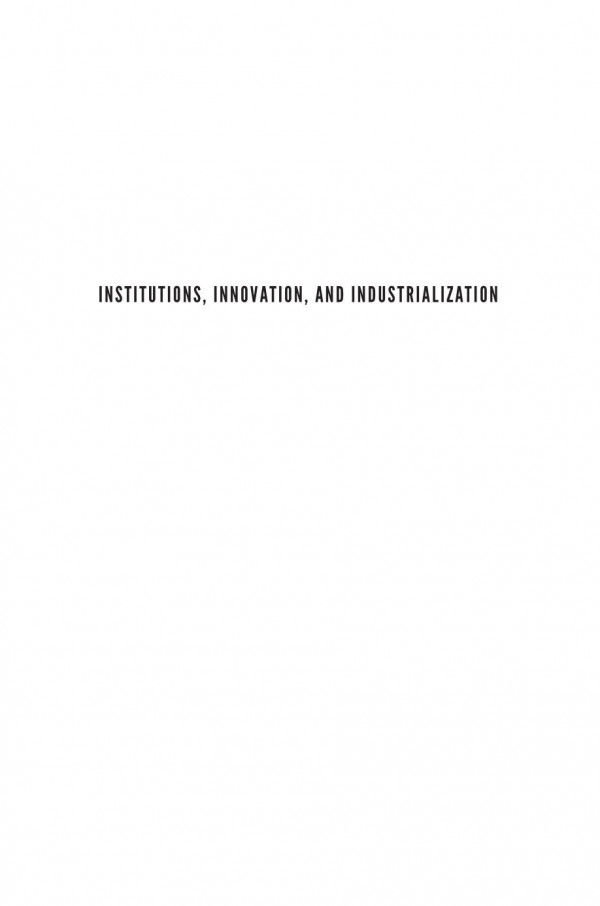

Most ebook files are in PDF format, so you can easily read them using various software such as Foxit Reader or directly on the Google Chrome browser.
Some ebook files are released by publishers in other formats such as .awz, .mobi, .epub, .fb2, etc. You may need to install specific software to read these formats on mobile/PC, such as Calibre.
Please read the tutorial at this link: https://ebookbell.com/faq
We offer FREE conversion to the popular formats you request; however, this may take some time. Therefore, right after payment, please email us, and we will try to provide the service as quickly as possible.
For some exceptional file formats or broken links (if any), please refrain from opening any disputes. Instead, email us first, and we will try to assist within a maximum of 6 hours.
EbookBell Team

4.8
104 reviewsThis book brings together a group of leading economic historians to examine how institutions, innovation, and industrialization have determined the development of nations. Presented in honor of Joel Mokyr—arguably the preeminent economic historian of his generation—these wide-ranging essays address a host of core economic questions. What are the origins of markets? How do governments shape our economic fortunes? What role has entrepreneurship played in the rise and success of capitalism? Tackling these and other issues, the book looks at coercion and exchange in the markets of twelfth-century China, sovereign debt in the age of Philip II of Spain, the regulation of child labor in nineteenth-century Europe, meat provisioning in pre–Civil War New York, aircraft manufacturing before World War I, and more. The book also features an essay that surveys Mokyr's important contributions to the field of economic history, and an essay by Mokyr himself on the origins of the Industrial Revolution.
In addition to the editors, the contributors are Gergely Baics, Hoyt Bleakley, Fabio Braggion, Joyce Burnette, Louis Cain, Mauricio Drelichman, Narly Dwarkasing, Joseph Ferrie, Noel Johnson, Eric Jones, Mark Koyama, Ralf Meisenzahl, Peter Meyer, Joel Mokyr, Lyndon Moore, Cormac Ó Gráda, Rick Szostak, Carolyn Tuttle, Karine van der Beek, Hans-Joachim Voth, and Simone Wegge.